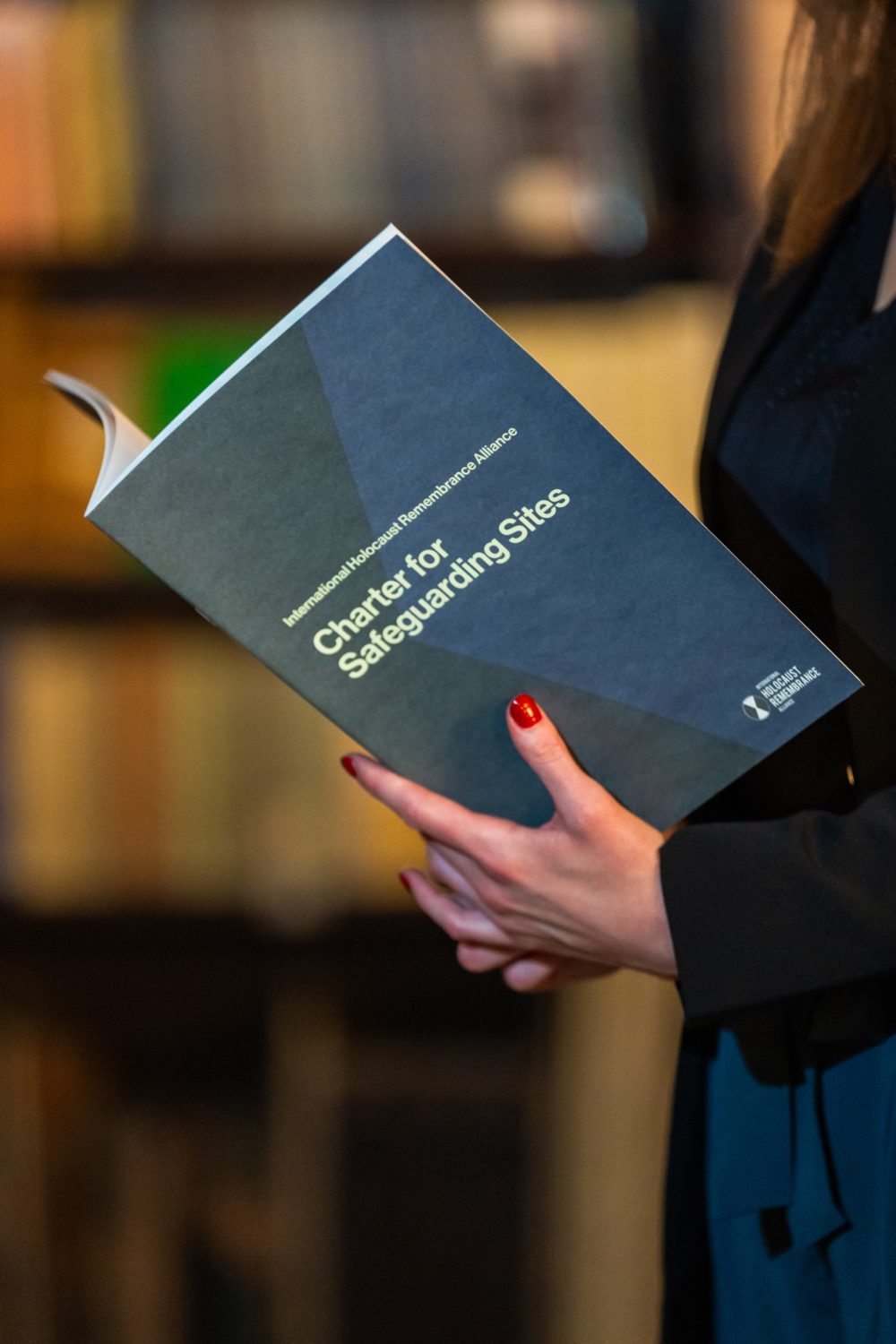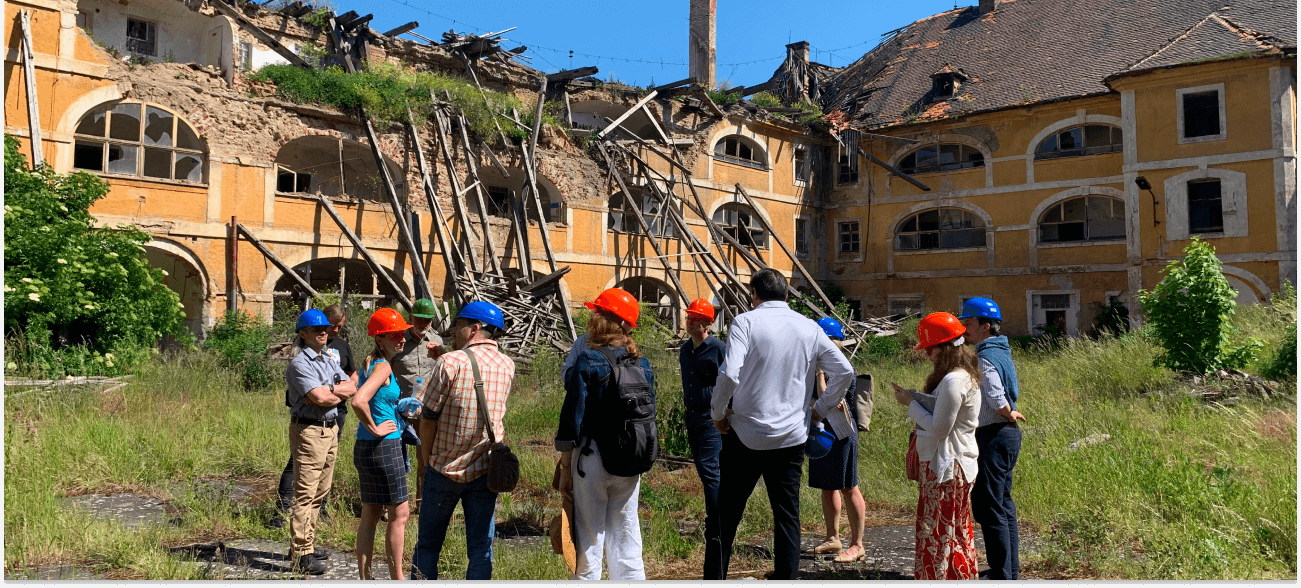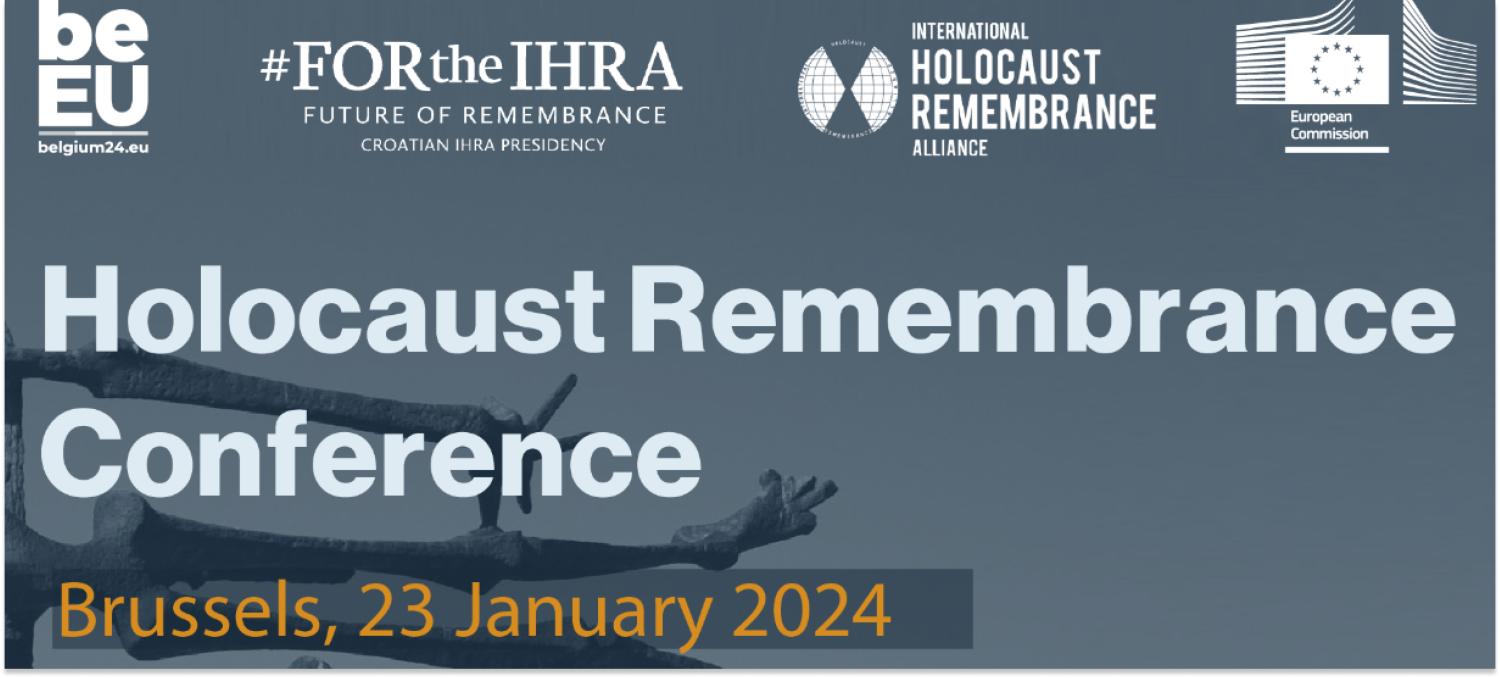
Holocaust sites under threat to benefit from new IHRA Charter for Safeguarding Sites
Press release
A new resource aimed at safeguarding sites of the Holocaust and genocide of the Roma has been launched today (Tuesday 23 January, 2024) by the International Holocaust Remembrance Alliance. By encouraging good safeguarding practices, the IHRA Charter will in turn protect the historical record of the Holocaust.
All authentic sites of the Holocaust still standing are now approaching or surpassing 80 years old and face unprecedented challenges. Not a single site is properly and entirely safeguarded. Even more well-known sites like Auschwitz Birkenau still face threats of vandalism and climate change.
The IHRA Charter for Safeguarding Sites addresses these challenges. It identifies 16 common risks facing sites and offers guidance on how to mitigate them. These common risks range from neglect and decay to inappropriate reuse and funding challenges.
Developed by IHRA experts, the IHRA Charter for Safeguarding Sites is designed to help governments understand the challenges facing sites in their respective countries and uses expert-informed risk mitigation strategies to safeguard sites well into the future.
Dr. Kathrin Meyer, IHRA Secretary General states: “Sites of the Holocaust and genocide of the Roma are the key to remembrance, research, and education. With fewer survivors to look to for testimony, these important locations are a living memory of the Holocaust and provide a tangible link to the past.
“The IHRA Charter for Safeguarding Sites will help protect the facts of the Holocaust for generations to come. By properly safeguarding sites, governments can ensure that sites are not used to distort or falsify history.”
There are an estimated 44,000 sites across Europe, ranging from the well-known such as Auschwitz Birkenau where 1.1 million Jewish men, women and children lost their lives, to unmarked sites, such as Gunskirchen, a subcamp of Mauthausen, where textiles and artifacts still scatter the forest floor. Each has its own story which contributes to the overall historical record of the Holocaust and the genocide of the Roma.
Dr. Gilly Carr, Chair of IHRA Safeguarding Sites Project states: “Safeguarding sites of the Holocaust and genocide of the Roma is a global issue requiring common standards and coordinated efforts across borders. It requires consistent effort and attention from the local civil society level all the way up to national government and international levels.
“We also hope that the Charter will help those caring for other cultural sites of sensitive histories to implement similar safeguarding practices, preserving and protecting the historical record.”
The IHRA Charter was presented during the 5th meeting of the European Commission’s Working Group on the implementation of the EU Strategy on combating antisemitism and fostering Jewish life and was highlighted during the “Holocaust Remembrance Conference: Remembering the Past. Shaping the Future” that took place thereafter.
During her address, Co-Chair of the Croatian IHRA Presidency Ambassador Terezija Gras said: “If the stories of the Holocaust are abundant – and protected – in the places where they happened, their impact will continue to reverberate through generations. In this way, sites will teach future generations that antisemitism and other forms of hatred are incompatible with Europe’s core values and represent a threat to our democratic, pluralistic societies.
“This is why countering Holocaust distortion and combating antisemitism is not just about protecting the past; it is about protecting the present and most importantly, it is about protecting the future.”
Editor’s notes
- The International Holocaust Remembrance Alliance (The IHRA) is the only intergovernmental organization with a mandate focused on addressing contemporary challenges related to the Holocaust and genocide of the Roma. We foster education, remembrance, and research about what happened in the past, to build a world without genocide in the future.
- The Charter for Safeguarding Sites is the result of consultations with heritage experts, visits to Holocaust-related sites, and meetings with site managers and directors. It was drafted by a team of IHRA experts involved in the IHRA’s Safeguarding Sites Project. More on the IHRA Project can be found here.
- The IHRA Charter for Safeguarding Sites can be downloaded here.
- Interviews, comment and case studies are available. Please contact Paulina Lainez at paulina.lainez@your-agenda.com.
Sign up to our newsletter to
receive the latest updates
By signing up to the IHRA newsletter, you agree to our Privacy Policy





